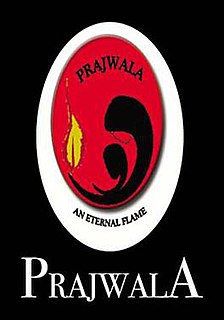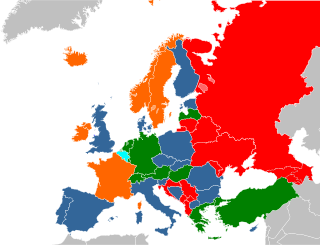Related Research Articles

Sexual slavery and sexual exploitation is attaching the right of ownership over one or more people with the intent of coercing or otherwise forcing them to engage in sexual activities. This includes forced labor, reducing a person to a servile status and sex trafficking persons, such as the sexual trafficking of children.

Child prostitution is prostitution involving a child, and it is a form of commercial sexual exploitation of children. The term normally refers to prostitution of a minor, or person under the legal age of consent. In most jurisdictions, child prostitution is illegal as part of general prohibition on prostitution.

Sex trafficking is human trafficking for the purpose of sexual exploitation. It has been called a form of modern slavery because of the way victims are forced into sexual acts, usually non-consensually, in a form of sexual slavery. Perpetrators of the crime are called sex traffickers or pimps—people who manipulate victims to engage in various forms of commercial sex with paying customers. Sex traffickers use force, fraud, and coercion as they recruit, transport, and provide their victims as prostitutes. Sometimes victims are brought into a situation of dependency on their trafficker(s), financially or emotionally. Every aspect of sex trafficking is considered a crime, from acquisition, to transportation and exploitation of victims. This includes any sexual exploitation of adults or minors, including child sex tourism (CST) and domestic minor sex trafficking (DMST).
Prostitution in Russia is illegal. The punishment for engagement in prostitution is a fine from 1500 up to 2000 rubles. Moreover, organizing prostitution is punishable by a prison term. Prostitution remains a very big problem in Russia.
Forced prostitution, also known as involuntary prostitution or compulsory prostitution, is prostitution or sexual slavery that takes place as a result of coercion by a third party. The terms "forced prostitution" or "enforced prostitution" appear in international and humanitarian conventions such as the Rome Statute of the International Criminal Court but have been insufficiently understood and inconsistently applied. "Forced prostitution" refers to conditions of control over a person who is coerced by another to engage in sexual activity.

Human trafficking and the prostitution of children is a significant issue in the Philippines, often controlled by organized crime syndicates. Human trafficking is a crime against humanity.

Prajwala is a non-governmental organisation based in Hyderabad, India, devoted exclusively to eradicating forced prostitution and sex trafficking. Founded in 1996 by Ms. Sunitha Krishnan and Brother Jose Vetticatil, the organisation actively works in the areas of prevention, rescue, rehabilitation, reintegration and advocacy to combat trafficking in every dimension and restore dignity to victims of commercial sexual exploitation.
The Bulgarian mafia is a series of organized crime elements originating from Bulgaria.

Cambodia is a source, transit, and destination country for human trafficking. The traffickers are reportedly organized crime syndicates, parents, relatives, friends, intimate partners, and neighbors. Despite human trafficking being a crime in Cambodia, the country has a significant child sex tourism problem; some children are sold by their parents, while others are lured by what they think are legitimate job offers like waitressing, but then are forced into prostitution. Children are often held captive, beaten, and starved to force them into prostitution.

The legality of prostitution in Europe varies by country.
Prostitution in Bulgaria is itself legal, but organised prostitution is prohibited. In the past, the Bulgarian government considered fully legalising and regulating prostitution.
Shared Hope International (SHI) is a nonprofit, non-governmental, Christian organization that exists to prevent sex trafficking and restore and bring justice to women and children who have been victimized through sex trafficking. SHI is part of a worldwide effort to prevent and eradicate sex trafficking and slavery. The organization operates programs in the United States, India, Nepal and Jamaica. Shared Hope leads awareness and training, prevention strategies, restorative care, research, and policy initiatives to mobilize a national network of protection for victims.
Prostitution in Cambodia is illegal, but prevalent. A 2008 Cambodian Law on Suppression of Human Trafficking and Sexual Exploitation has proven controversial, with international concerns regarding human rights abuses resulting from it, such as outlined in the 2010 Human Rights Watch report.
Afghanistan is one of the source, transit, and destination country for men, women, and children who are subjected to trafficking in persons, specifically forced labor and forced prostitution. Trafficking within Afghanistan is more prevalent than transnational trafficking, and the majority of victims are children. In 2005 the Afghan Independent Human Rights Commission (AIHRC) reported 150 child trafficking cases to other states. Afghan boys and girls are trafficked within the country and into Iran, Pakistan and India as well as Persian gulf Arab states, where they live as slaves and are forced to prostitution and forced labor in brick kilns, carpet-making factories, and domestic service. In some cases the boys and girls were used for organ trafficking. Forced begging is a growing problem in Afghanistan; Mafia groups organize professional begging rings. Afghan boys are subjected to forced prostitution and forced labor in the drug smuggling industry in Pakistan and Iran. Afghan women and girls are subjected to forced prostitution, arranged and forced marriages—including those in which husbands force their wives into prostitution—and involuntary domestic servitude in Pakistan and Iran, and possibly India. Non-governmental organizations (NGOs) report that over the past year, increasing numbers of boys were trafficked internally. Some families knowingly sell their children for forced prostitution, including for bacha bazi - a practice combining sexual slavery and child prostitution, through which wealthy men use harems of young boys for social and sexual entertainment. Other families send their children with brokers to gain employment. Many of these children end up in forced labor, particularly in Pakistani carpet factories. NGOs indicate that families sometimes make cost-benefit analyses regarding how much debt they can incur based on their tradable family members.
Human trafficking in Nepal is a growing criminal industry affecting multiple other countries beyond Nepal, primarily across Asia and the Middle East. Nepal is mainly a source country for men, women and children subjected to the forced labor and sex trafficking. U.S. State Department's Office to Monitor and Combat Trafficking in Persons placed the country in "Tier 2" in 2017.
Bulgaria is a source and, to a lesser extent, a transit and destination country for women and children who are subjected to trafficking in persons, specifically forced prostitution and men, women, and children subjected to conditions of forced labor. Bulgarian women and children are subjected to forced prostitution within the country, particularly in resort areas and border towns, as well as in the Netherlands, Belgium, France, Austria, Germany, the Czech Republic, Finland, Portugal, Greece, Italy, Spain, Poland, Switzerland, Turkey, Cyprus, and North Macedonia. Ethnic Roma women and children account for approximately 80 percent of Bulgarian trafficking victims. Bulgarian men, women, and children are subjected to conditions of forced labor in Greece, Italy, Spain, and the United Kingdom. Some Bulgarian children are forced into street begging and petty theft within Bulgaria and also in Greece and the United Kingdom.
Celia Williamson is an American University of Toledo Distinguished Professor of Social Work and Executive Director of the Human Trafficking and Social Justice Institute, as well as researcher and community advocate who seeks to combat domestic human trafficking and prostitution. She was named the 26th most influential social worker alive today.

Sex trafficking in the United States is a form of human trafficking which involves reproductive slavery or commercial sexual exploitation as it occurs in the United States. Sex trafficking includes the transportation of persons by means of coercion, deception and/or force into exploitative and slavery-like conditions, and is commonly associated with organized crime.
References
- 1 2 3 Andrew Ridgway (2007-03-12). "Reading Room: Face to Face with Human Trafficking in Bulgaria". The Sofia Echo. Archived from the original on 2007-03-28. Retrieved 2008-02-08.
- ↑ Rosie Goldsmith (2005-02-23). "Bulgaria's Disturbing Baby Market". BBC News . Retrieved 2008-02-08.
- ↑ Niambi Wilder (2007-07-27). "Filmmaker Champions Sex Trafficking Victims". ABC News. Retrieved 2008-02-08.
- ↑ "Bulgaria-Shot Film About Sex Slavery with 2 More Awards in LA". Sofia News Agency. 2005-12-06. Retrieved 2008-02-08.
- ↑ Alexandra Alexandrova (2004-02-19). "Jazzing It Up". The Sofia Echo. Archived from the original on 29 July 2005. Retrieved 2008-02-08.
- ↑ "Annual Corporate and Celebrity Charity Ski Event - Bansko 2006". The Sofia Echo. 2006-04-03. Archived from the original on 2 February 2013. Retrieved 2008-02-08.